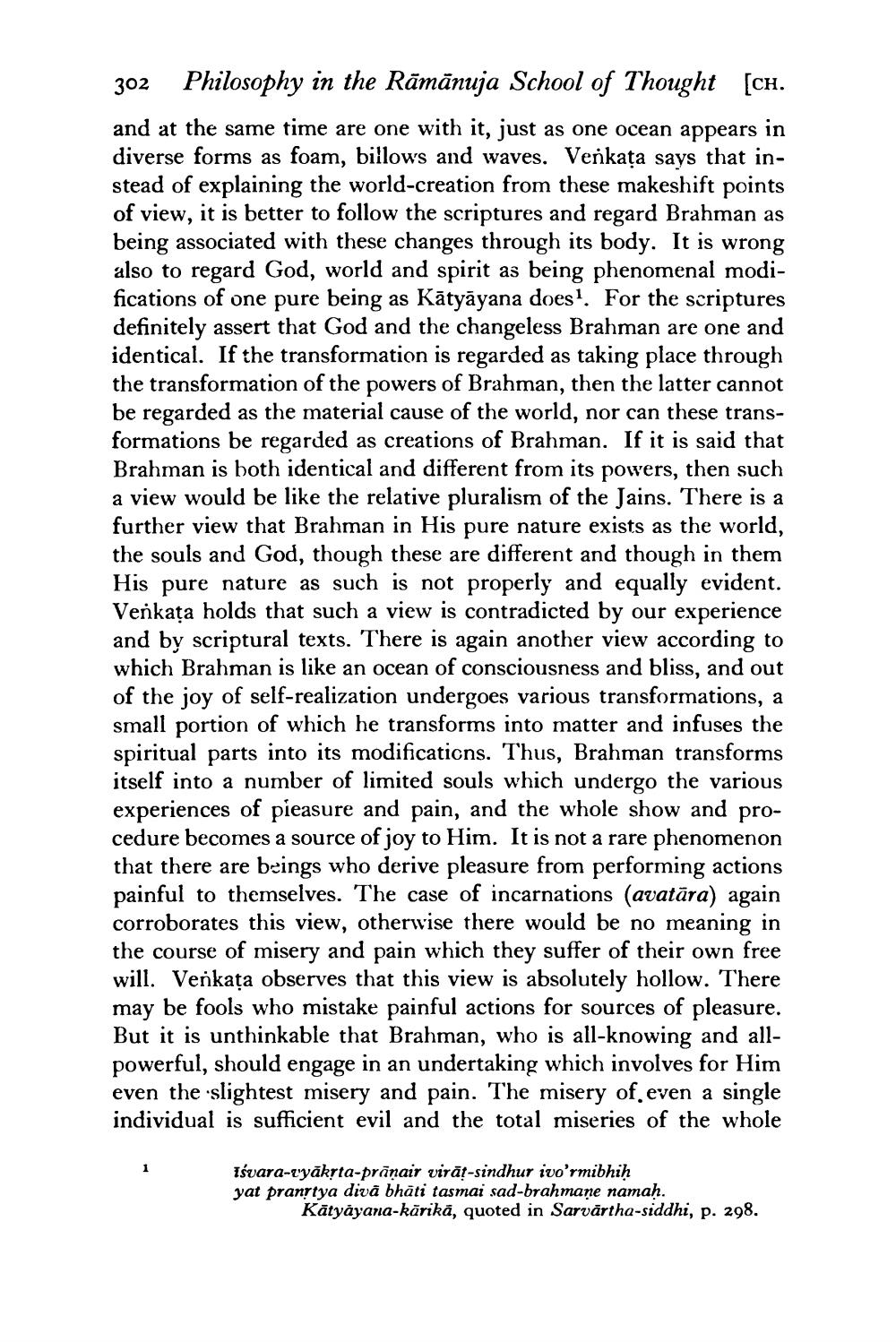________________
302 Philosophy in the Rāmānuja School of Thought [CH. and at the same time are one with it, just as one ocean appears in diverse forms as foam, billows and waves. Venkata says that instead of explaining the world-creation from these makeshift points of view, it is better to follow the scriptures and regard Brahman as being associated with these changes through its body. It is wrong also to regard God, world and spirit as being phenomenal modifications of one pure being as Kātyāyana does!. For the scriptures definitely assert that God and the changeless Brahman are one and identical. If the transformation is regarded as taking place through the transformation of the powers of Brahman, then the latter cannot be regarded as the material cause of the world, nor can these transformations be regarded as creations of Brahman. If it is said that Brahman is both identical and different from its powers, then such a view would be like the relative pluralism of the Jains. There is a further view that Brahman in His pure nature exists as the world, the souls and God, though these are different and though in them His pure nature as such is not properly and equally evident. Venkata holds that such a view is contradicted by our experience and by scriptural texts. There is again another view according to which Brahman is like an ocean of consciousness and bliss, and out of the joy of self-realization undergoes various transformations, a small portion of which he transforms into matter and infuses the spiritual parts into its modifications. Thus, Brahman transforms itself into a number of limited souls which undergo the various experiences of pieasure and pain, and the whole show and procedure becomes a source of joy to Him. It is not a rare phenomenon that there are beings who derive pleasure from performing actions painful to themselves. The case of incarnations (avatāra) again corroborates this view, otherwise there would be no meaning in the course of misery and pain which they suffer of their own free will. Venkata observes that this view is absolutely hollow. There may be fools who mistake painful actions for sources of pleasure. But it is unthinkable that Brahman, who is all-knowing and allpowerful, should engage in an undertaking which involves for Him even the slightest misery and pain. The misery of even a single individual is sufficient evil and the total miseries of the whole
Tśvara-ryākrta-prānair virāt-sindhur ivo'rmibhiḥ yat pranrtya diva bhāti tasmai sad-brahmane namah.
Kātyayana-kārikā, quoted in Sarvärtha-siddhi, p. 298.




